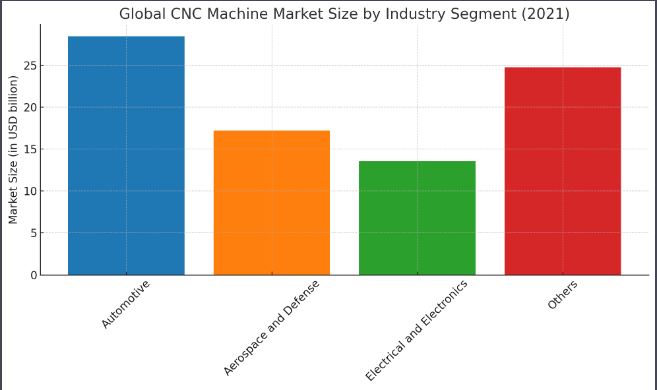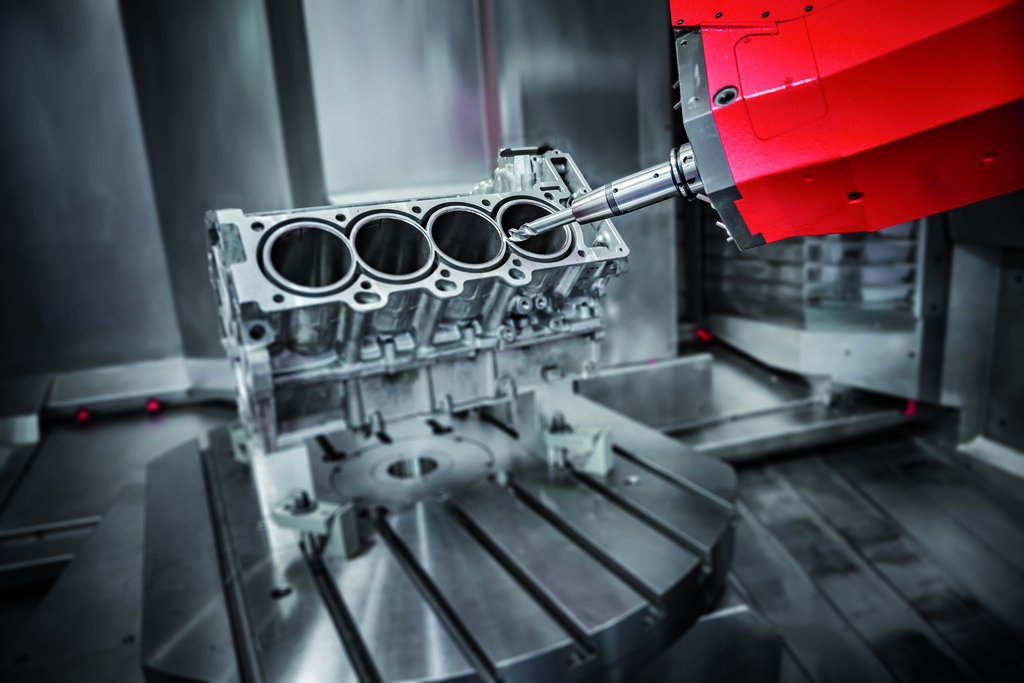Introduction
Precision is a critical factor in modern manufacturing processes. As industries become more advanced and demanding, achieving CNC precision has emerged as a key requirement. CNC precision involves the accurate and reliable execution of machining operations, resulting in parts that meet strict dimensions, specifications, and tolerances.
Read our Introduction to CNC Machining Basics
Importance of CNC Precision in the Manufacturing Industry
In the world of manufacturing, precision is directly linked to quality, efficiency, and competitiveness. Manufacturers strive for CNC precision to ensure that their products meet customer expectations and industry standards. Precision machining enables the production of complex and intricate parts with tight tolerances, leading to enhanced product performance and reliability.
Definition of CNC Precision and its relevance to machining technology
CNC precision refers to the ability of Computer Numerical Control (CNC) machines to execute precise movements and measurements during the machining process. It encompasses various factors, including part accuracy, dimensional control, shape consistency, surface finish, repeatability, and reliability. CNC precision correlates with the level of accuracy and quality achieved in the final product.
Precision is a crucial aspect of CNC (Computer Numerical Control) manufacturing, ensuring accuracy, consistency, and reliability in the production of parts and components. In this section, we will explore the role of CNC machine tools in achieving precision, the benefits of CNC precision in manufacturing, the applications and markets for CNC precision, and the challenges and solutions in CNC precision.
A. The Role of CNC Machine Tools in Achieving Precision
CNC machine tools form the foundation of precision manufacturing. They are designed to execute precise and repeatable movements, enabling the production of complex and accurate parts. Several factors contribute to CNC precision:
- Importance of servo control technology: Servo control systems are integral to CNC precision machining. They ensure axis accuracy and repeatability, controlling the movement of the machine tool with precise feedback mechanisms. This technology plays a critical role in achieving the desired part dimensions and tolerances.
- Impact of tool paths: The tool path is a crucial element in CNC precision machining. It determines the trajectory and movements of the cutting tools, influencing the accuracy and quality of the final part. Optimal tool paths minimize machining errors, reduce vibrations, and enhance overall precision.
- Utilization of CAD and CAM: Computer-Aided Design (CAD) and Computer-Aided Manufacturing (CAM) software enable the generation of highly accurate CNC programs. These programs define the tool paths, speeds, feeds, and other parameters necessary for precision machining operations. CAD/CAM integration ensures precise operations and reduces human error.
- Examination of CNC components: Various components contribute to achieving CNC precision. Spindles, linear guides, ball screws, and machine controllers play a vital role in maintaining accuracy, rigidity, and stability. High-quality and well-maintained components are essential for consistent and reliable CNC precision.
B. Benefits of CNC Precision in Manufacturing
The adoption of CNC precision machining offers numerous benefits to manufacturers across different industries:
| Benefit Category | Specific Benefits |
|---|---|
| Enhanced Production Efficiency | – Reduction in production costs through optimized use of materials. |
| – Increase in production speed due to accurate and reliable machining, reduced setup time, and improved cutting strategies. | |
| – Improvement in production safety by minimizing human errors and strict adherence to safety protocols. | |
| – Reduction in production waste enabling sustainable manufacturing practices and leading to cost savings and environmental benefits. | |
| Improved Part Quality and Complexity | – Ability to manufacture intricate and complex part designs expanding design possibilities. |
| – Consistent and precise part dimensions and specifications leading to improved product quality, interchangeability, and compatibility. | |
| – Achieving desired part shapes and finishes with high accuracy and repeatability, resulting in superior aesthetics and functionality. |
1. Enhanced Production Efficiency:
a. Reduction in production costs: CNC precision machining optimizes the use of materials, minimizing waste and lowering production costs. The accurate and efficient machining processes reduce the need for rework or scrap, saving both time and money.
b. Increase in production speed: CNC precision ensures accurate and reliable machining, resulting in faster production cycles. Reduced setup time, minimized tool wear, and improved cutting strategies contribute to increased production speed and overall efficiency.
c. Improvement in production safety: CNC precision minimizes human errors, reducing the risk of accidents and injuries. With automated machining processes and strict adherence to safety protocols, production safety is significantly enhanced.
d. Reduction in production waste: CNC precision machining enables precise material utilization, reducing waste and contributing to sustainable manufacturing practices. This leads to cost savings and environmental benefits.
2. Improved Part Quality and Complexity:
a. Ability to manufacture intricate and complex part designs: CNC precision machining enables the production of intricate and complex part designs that would be challenging or impossible with conventional methods. It allows for the creation of intricate features, tight tolerances, and complex shapes, expanding design possibilities.
b. Consistent and precise part dimensions and specifications: CNC precision ensures the consistent reproduction of part dimensions and specifications. This leads to improved product quality, interchangeability, and compatibility.
c. Achieving desired part shapes and finishes: CNC precision machining enables the creation of desired part shapes and finishes with high accuracy and repeatability. Smooth surfaces, sharp edges, and intricate details can be achieved consistently, resulting in superior aesthetics and functionality.

C. Applications and Markets for CNC Precision
CNC precision machining finds applications in various industries and sectors:
- Overview of industries and sectors utilizing CNC precision machining: CNC precision is widely adopted in industries such as aerospace, automotive, medical, electronics, defense, and energy. These industries rely on precision manufacturing to meet stringent quality, performance, and safety requirements.
- Examination of specific CNC applications in various industries: In the aerospace industry, CNC precision machining is crucial for manufacturing components with tight tolerances for aircraft engines, airframes, and avionics. In the medical sector, precision machining is utilized for producing intricate surgical instruments, implants, and medical devices. Similarly, the automotive industry utilizes CNC precision machining for engine components, chassis parts, and interior trim.
- Discussion of the growing CNC markets and the demand for precision manufacturing: The CNC precision machining market is witnessing significant growth due to the increasing demand for high-quality and complex parts. As industries strive for improved efficiency, precision, and innovation, the demand for CNC precision is expected to continue increasing.
- Exploration of CNC production and automation in meeting market requirements: CNC precision machining plays a vital role in meeting the evolving market requirements. It enables manufacturers to produce customized and high-precision parts, ensuring compliance with industry standards and regulations. The integration of CNC machines with automation technologies further enhances production efficiency and flexibility.
D. Challenges and Solutions in CNC Precision
While CNC precision machining provides numerous benefits, several challenges need to be addressed to ensure optimal precision:
- Addressing potential production errors and deviations: Even with advanced CNC systems, errors and deviations can occur. Factors such as machine wear, temperature variations, and material characteristics can impact CNC precision. Regular maintenance, calibration, and ongoing process monitoring help mitigate these challenges.
- Ensuring adherence to production standards and regulations: Industries have strict quality, safety, and regulatory standards that must be met during CNC precision machining. Implementing robust quality control processes, conducting inspections, and adhering to industry-specific guidelines are essential to achieve compliance.
- Utilization of advanced technologies and techniques to overcome precision challenges: Advanced technologies like real-time monitoring, simulation software, and predictive analytics can help identify potential precision issues before they impact production. Utilizing innovative machining techniques, such as 5-axis machining and high-speed machining, can also enhance CNC precision.
- Availability of CNC services and solutions to support precision manufacturing: Manufacturers must have access to reliable CNC services and solutions. This includes technical support, training, and access to cutting-edge CNC technologies and tools. Collaborating with experienced CNC service providers can help ensure successful precision manufacturing.
III. Conclusion
In conclusion, CNC precision is vital in the manufacturing industry, enabling the production of accurate, reliable, and intricate parts. It plays a significant role in enhancing production efficiency, improving part quality and complexity, and meeting market demands. While challenges exist, technological advancements and industry expertise provide solutions to overcome them. As CNC precision continues to evolve, it will continue to shape the future of manufacturing, driving innovation and excellence in the industry.
Read more : the World of 5-Axis Simultaneous Machining
FAQ
Q: Why is precision measurement crucial in manufacturing?
A: Precision is essential as it ensures product quality, efficiency, and competitiveness, meeting customer expectations and industry standards.
Q: How do CNC machines aid in precision manufacturing?
A: They execute precise and repeatable movements, utilizing CAD and CAM software, to produce complex and accurate parts, ensuring high quality.
Q: What constitutes the precision of CNC machining?
A: Precision in CNC machining involves accuracy, dimensional control, shape consistency, surface finish, repeatability, and reliability in the final product.
Q: How precise are CNC mills?
A: Extremely precise, thanks to advanced servo control technology, optimal tool paths, and CAD and CAM software integration.
Q: What differentiates accuracy from precision in CNC?
A: Accuracy is how closely the outcome matches the target, while precision relates to the consistency and repeatability of the machining process.
Q: How accurate are CNC machine tools?
A: Highly accurate, due to advanced servo control systems, precise feedback mechanisms, and regular maintenance and calibration of CNC components.
Q: What benefits does CNC precision offer in manufacturing?
A: It enhances production efficiency, improves production safety, reduces waste, enables the creation of complex designs, and assures consistent and precise dimensions and specifications.
Q: Which industries commonly use CNC precision machining?
A: Aerospace, automotive, medical, electronics, defense, and energy industries, among others, where stringent quality, performance, and safety requirements exist.
Q: How are challenges in CNC precision addressed?
A: Through regular maintenance, calibration, quality control processes, inspections, advanced technologies like real-time monitoring, predictive analytics, and collaboration with experienced CNC service providers.

